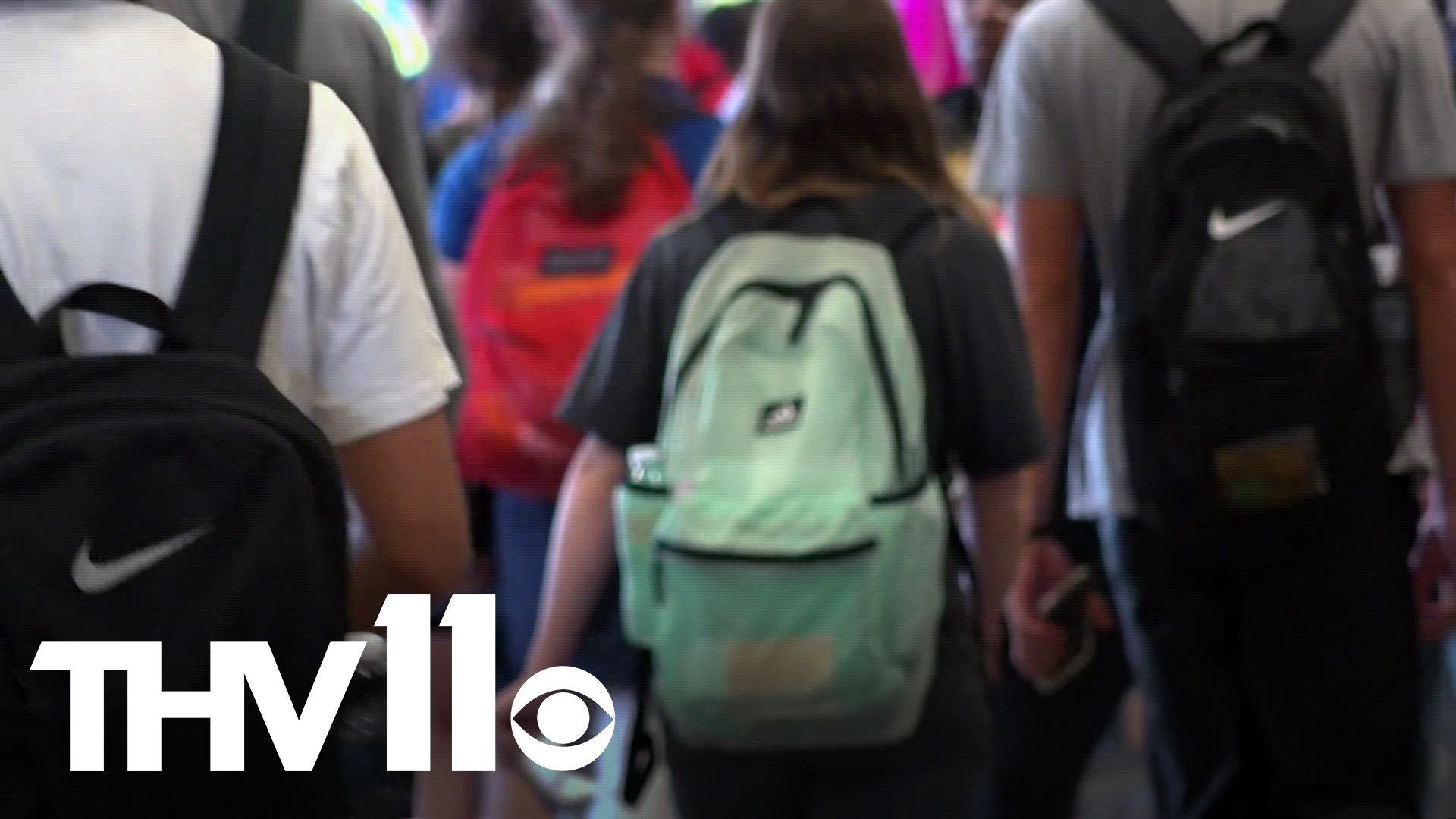LITTLE ROCK, Ark. — A new program, Protect Arkansas Youth, is rolling out this year in some schools and aims to better connect educators and law enforcement.
The purpose is to identify and help kids who may have been through a traumatic event outside the classroom.
Students return to school this week, and sometimes teachers can be the first to notice changes in kids' behaviors, like sleeping in class or acting out. Those actions can sometimes stem from trauma outside of the classroom.
Additionally, this program hopes to give schools and law enforcement more understanding of what kids are going through to ensure no one falls through the cracks.
Cheryl May with the University of Arkansas Criminal Justice Institute focuses on school safety and leads the initiative, also called the PAYCheck program.
"'Pay' stands for Protecting Arkansas Youth," May said. "The 'check' is for folks to be able to check on these kids who have been traumatized."
May said the goal is to create better communication between law enforcement and schools while bringing understanding to what students may be going through outside of class.
"Without getting into the specific details, other than, 'Hey, this kid's been traumatized. Keep an eye on him," May said. "If they act out, instead of going down the disciplinary road, try and get them to a counselor."
To participate, both the school district and local law enforcement have to agree to trauma response training.
Since the rollout in the fall, at least seven school districts and police departments have joined:
School Districts
- Bald Knob
- Bauxite
- Guy-Perkins
- Heber Springs
- Midland
- Perryville
- The Thaden School (Bentonville)
Law Enforcement Agencies
- Guy
- Heber Springs
- Perryville
- Pleasant Plains
- Russellville
- Searcy
- Cleburne County
Heber Springs was one of the first.
"As far as law enforcement officers, it really helps us to understand what every agency has to do to do their job successfully," Heber Springs Resource Officer Jeffery Hiltz said.
Hiltz said he is already seeing positive change in how they support their students.
"We are a support for the kids," Hiltz said. "It's made a big difference in our community and school."
All of this is aimed at helping students thrive from understanding rather than punishment, increasing overall safety.
"I think it's going to play a major role in school safety," Hiltz said. "We're going to be able to provide better guidance in and about the school system."
With a positive start, the criminal justice system hopes more school districts will enroll.
"Our kids are our future," May said. "When you think about those things that will have a lasting impact, it's through our kids."
Hiltz said the program's trauma training has helped the police department and brought more understanding to challenging situations.
School districts and police departments are still welcome to join the program, but May said it takes both sides to really make the program work.
Officials can contact Brenda Howard at (501) 570- 8076 for more information.

